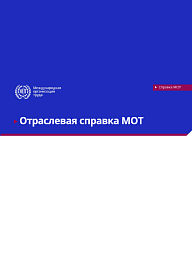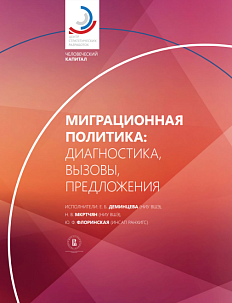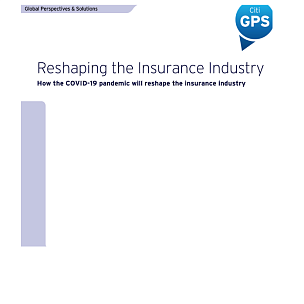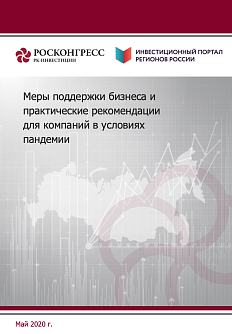The International Labour Organization (ILO) has published a sectoral brief about the impact of COVID-19 on the tourism sector. The publication describes the current state of the tourism industry across countries and makes forecasts for the future. According to the ILO, the sector may still play a key role in reinvigorating the global economy once the crisis is over because the tourism industry is known for its resilience to economic downturns and crises, as was the case following the severe acute respiratory syndrome (SARS) epidemic in 2003 and the 2008-2009 global financial crisis.
The Roscongress Foundation presents the salient points of the publication accompanied by fragments of broadcasts of relevant panel discussions from the business programme of international events held by the Roscongress Foundation.
The tourism industry has been hit hard by the necessary measures taken to contain the COVID-19 pandemic, and the ILO considers it unlikely that the sector will return to normalcy any time soon. Even after the progressive lifting of containment measures, surviving enterprises will continue to face the challenges of a likely slow recovery.
The ILO estimates that the pandemic could cause the equivalent of 305 million job losses, many of which are in the tourism sector. The pandemic and global efforts to contain it could cause the international tourism economy to contract by between 45 and 70 per cent. Domestic tourism industries are also being impacted as about half of the world’s population is estimated to be constrained by containment measures. Nevertheless, domestic tourism is expected to recover faster than the international tourism industry.
Hotels, restaurants, tour operators, airlines, and cruise ships have suspended their operations indefinitely. In the accommodation and food services subsectors, 51 million businesses are facing an extraordinarily difficult business environment with major impacts on employment opportunities. With the drastic fall in economic activity, workers in the labour-intensive tourism industry are now facing devastating reductions in working time, potential job losses, and growing decent work challenges.
Measures to support tourism businesses and safeguard jobs and incomes will prove critical for the sector in the near future.
Some countries such as Portugal, Barbados, Singapore, and Chile have provided training and capacity building for tourism workers during the lockdown through free or subsidized online courses. The Chilean SIGO programme provides technical assistance in business and digital management processes for tourism entrepreneurs and is being adapted to address the particular challenges of the emergency and the post-crisis reactivation process.
Many countries have implemented policies to support tourism enterprises, jobs, and incomes through the suspension or subsidization of taxes, fees and social security contributions. Some countries are providing additional incentives for enterprises to retain employees by tying financial aid to retaining staff. Under Jamaica’s BEST Cash programme, small businesses in targeted sectors, such as tourism, receive a government cash transfer twice a month for every worker whose job is retained. A complementary programme provides the same transfer scheme for individuals who have lost their jobs between 10 March and 30 June 2020, meaning there is support for both the retention of tourism sector jobs and people who are out of work.
Short, medium, and long-term policy responses should be developed on the basis of the ILO framework for responding to the COVID-19 pandemic, which is comprised of the four interconnected pillars:
· Stimulating the economy and employment;
· Supporting enterprises, jobs, and incomes;
· Protecting workers in the workplace;
· Relying on social dialogue for solutions.
The recommendations on the promotion of decent jobs for women and young people are particularly relevant in the context of the pandemic as these social groups are particularly vulnerable to economic impacts of the pandemic. Coordinated action should be undertaken to address the crisis, in consultation with governments, employers’ and workers’ representatives, and taking into consideration relevant ILO Conventions and Recommendations.
Although the tourism industry has been hit hard by the necessary measures taken to contain the pandemic, the sector may still play a key role in reinvigorating the global economy once the crisis is over.
According to ILO, the tourism sector won’t emerge from the COVID-19 crisis without aftershocks. The sector is, however, known for its resilience to economic downturns and crises, as was the case following the severe acute respiratory syndrome (SARS) epidemic in 2003 and the 2008-2009 global financial crisis. As such, the sector may play a key role in reinvigorating the global economy once the crisis is over. «Building back better» in the post-pandemic period could align the tourism industry more closely with the Sustainable Development Goals and lead to a greener, more inclusive and resilient industry that provides decent work for all tourism workers.
Video: https://roscongress.org/sessions/spief-2019-invest-sessiya/search/#00:57:21.663
For more information about possible ways to stabilize the economy during a pandemic, please see the StayHomeEconomy special section of the Roscongress information and analytical system, and the Tourism, Labor market, and Entrepreneurship sections about the development of the tourism sector and labor market.






